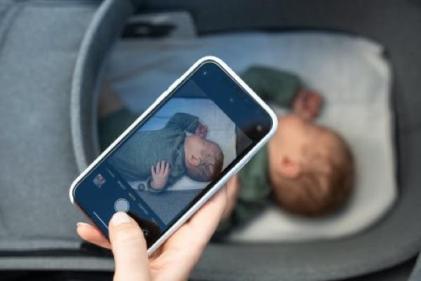Have you ever had that feeling that your baby is trying to tell you something?
Babies attempt to communicate with us from as early as three months by mimicking our voices and sounds, babbling and laughing.
And as all mums know, it can be frustrating on both sides when you can’t quite decipher what it is your baby wants or is trying to say.
One Irish mum thinks she may have the solution to this.
Miriam Devitt taught her daughter Robin, now eight, Irish Sign Language (ISL) as a baby, to help her communicate faster before she began talking properly.
Robin has perfect hearing and speech, but Miriam wanted to help her learn to communicate at a younger age.
Miriam explains that prior to Robin’s birth, she’d noticed if she tapped her bump, Robin would tap back. It got her thinking that if her baby could communicate in the womb, she could certainly communicate very well outside of it.
After Robin was born, Miriam did some research and decided she wanted to try teaching her daughter to sign.
“As an actor, a storyteller, a teacher, a writer, communication in all forms plays a very important part in my life. At first, I lazily signed a bit, not really sure about it but happy to give it a whirl," she said.
Miriam started off with basic signs such as “eat” and “milk”, and gradually she saw Robin was learning the signs herself, according to The Irish Sun.
Then, one day, Robin signed “milk” back by herself. She was only seven months old at the time.
Babies this age have more advanced receptive language skills than expressive language. This means they can understand some words and sentences but have difficulty putting thoughts into words and sentences. Miriam says that’s where sign language comes in to “bridge the gap.”
"That year between six months to 18 months, or even up to two years when a lot of children aren’t speaking at all, they wouldn’t be expected to, but they have the ability to sign,” she explained.
Once she realised Robin could sign, Miriam threw herself into learning ISL.
She signed up for a course in it and now has her own business, superhands.ie, where she runs classes in sign language for toddlers, babies and their parents.
There’s even a Superhands app for parents who want to try it out at home.
Miriam says learning signs won’t affect a child’s verbal communication skills; instead, it will supplement it.
She says it helps young children to express feelings and desires better than they can through speech and helps families communicate.





